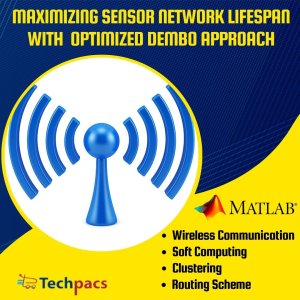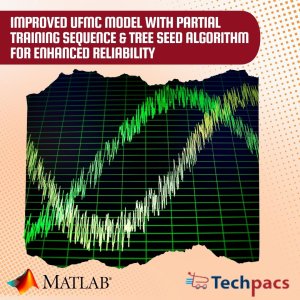Maximizing Robot Energy Efficiency through Fuzzy Logic and GWO Optimization
Problem Definition
In the domain of path planning and power consumption optimization for onboard equipment, several challenges have been identified. Existing strategies and methodologies for controlling speed on motors have shown limitations in adaptability and efficiency, requiring significant human intervention for planning. Moreover, although the use of power-efficient components is recommended to minimize power consumption, there is a lack of algorithms focused on reducing consumption beyond the minimum requirement. These issues highlight the need for a more advanced approach that can address the complexities of real-time movement conditions and optimize power usage through intelligent decision-making. By utilizing a fuzzy decision model that takes into account factors such as distance, slope, and friction for motor speed control, as well as the Gray wolf optimization algorithm for scheduling sensor switching, this proposed approach aims to overcome the existing limitations and pain points in order to achieve more efficient and autonomous operation in various scenarios.
Objective
The objective of this research is to develop a speed control management system for robots that optimizes power consumption through the use of fuzzy logic and the Gray wolf optimization (GWO) algorithm. By dynamically adjusting the speed of motors based on factors such as distance, slope, and friction, the system aims to achieve efficient movement. The GWO algorithm will be used to schedule sensor switching, further reducing power consumption by onboard equipment. The goal is to improve the overall performance of robots during transportation by balancing optimal speed control and energy efficiency. Through the combination of fuzzy logic and the GWO algorithm, the proposed work aims to provide adaptive and efficient solutions to complex problems in path planning and power consumption optimization.
Proposed Work
The proposed work aims to address the gap in existing research by developing a speed control management system for robots that optimizes power consumption through the use of fuzzy logic. By considering factors such as distance, slope, and friction, the system will be able to dynamically adjust the speed of the motors to ensure efficient movement. Additionally, the use of the Gray wolf optimization (GWO) algorithm to schedule sensor switching will further contribute to reducing power consumption by the onboard equipment. The focus is on achieving a balance between optimal speed control and energy efficiency, ultimately improving the overall performance of robots during transportation.
The rationale behind choosing fuzzy logic and the GWO algorithm for this project lies in their ability to provide adaptive and efficient solutions to complex problems.
Fuzzy logic allows for the creation of rules based on human expertise and intuition, making it well-suited for handling uncertain and imprecise data such as distance, slope, and friction in the context of path planning. On the other hand, the GWO algorithm is inspired by the hunting behavior of gray wolves and has been proven effective in optimizing complex systems with multiple variables. By combining these two approaches, the proposed work aims to create a comprehensive solution that not only addresses the research gap but also offers practical benefits in terms of power efficiency and performance optimization for robots.
Application Area for Industry
This project can be utilized in various industrial sectors such as manufacturing, logistics, and warehouse automation. In the manufacturing sector, the proposed solutions can help optimize the performance of robotic arms by controlling the speed of motors based on different movement conditions, thereby improving efficiency and reducing operational costs. In logistics and warehouse automation, the use of the fuzzy decision model can aid in path planning for autonomous vehicles, ensuring smoother navigation and minimizing energy consumption.
The challenges faced by industries in terms of energy consumption, operational efficiency, and battery lifespan can be effectively addressed by implementing the solutions proposed in this project. By using the Gray wolf optimization algorithm to schedule sensor switching and adopting power-efficient components, industries can benefit from reduced energy consumption, extended battery life, and improved overall performance of robotic systems.
Ultimately, the implementation of these solutions can lead to cost savings, increased productivity, and enhanced sustainability in various industrial domains.
Application Area for Academics
The proposed project can greatly enrich academic research, education, and training in the field of robotics and optimization. By utilizing fuzzy logic and the Gray wolf optimization algorithm, researchers can explore innovative methods to control the speed of motors in robots based on various environmental factors such as distance, slope, and friction. This not only enhances the efficiency of robot movements but also minimizes power consumption, thus increasing the overall lifespan of robots.
This project opens up avenues for conducting research on adaptive path planning methodologies and power optimization techniques in robotics. Academic institutions can incorporate these concepts into their curriculum to educate students on the latest advancements in the field.
By utilizing the code and literature from this project, MTech students and PhD scholars can further their research in robotics, optimization, and artificial intelligence.
The potential applications of this project extend to various research domains such as autonomous vehicles, industrial automation, and IoT devices. Researchers can experiment with different parameters and scenarios to study the effectiveness of the fuzzy decision model and GWO algorithm in real-world applications. Further exploration could lead to the development of more sophisticated algorithms and strategies for energy-efficient robot navigation.
The future scope of this project includes the integration of machine learning techniques for predictive modeling and optimization, as well as the implementation of advanced sensor technologies for environment perception.
By continuing to refine and expand upon the existing framework, researchers can contribute to the advancement of robotics technology and pave the way for more sustainable and efficient robotic systems.
Algorithms Used
Fuzzy logic algorithm is used in this project to model the decision-making process of the robot's movement. Fuzzy logic allows for imprecise inputs and outputs, which is beneficial in this scenario where the exact energy consumption of the robot may fluctuate. By using fuzzy logic, the system can make more accurate and flexible decisions based on the current conditions and optimize the robot's movement.
GWO (Grey Wolf Optimizer) algorithm is utilized to optimize the planning and controlling of the robot's energy consumption. GWO is a metaheuristic optimization algorithm inspired by the hunting behavior of grey wolves.
It is used to search for the optimal solutions in a complex problem space, in this case, reducing the energy consumption of the robot during its journey. By using GWO, the algorithm can efficiently adjust the robot's path and speed to minimize energy usage while reaching its destination.
Keywords
SEO-optimized keywords related to the project: Speed Control Management, Robots, Fuzzy Logic, Sensor Switching, Power Consumption, Task-Based Speed Control, Optimization Algorithm, Optimal Path Selection, Scheduling Automation, Priority-Based Scheduling, Grey Wolf Optimization (GWO), System Optimization, Robot Control, Power Efficiency, Control System, Robotic Systems, Control Algorithms, Task Automation, Path Planning, Robot Navigation, Robot Efficiency, Autonomous Robots, Fuzzy Control, Optimization Techniques
SEO Tags
Speed Control Management, Robots, Fuzzy Logic, Sensor Switching, Power Consumption, Task-Based Speed Control, Optimization Algorithm, Optimal Path Selection, Scheduling Automation, Priority-Based Scheduling, Grey Wolf Optimization (GWO), System Optimization, Robot Control, Power Efficiency, Control System, Robotic Systems, Control Algorithms, Task Automation, Path Planning, Robot Navigation, Robot Efficiency, Autonomous Robots, Fuzzy Control, Optimization Techniques
| Shipping Cost |
|
No reviews found!

















































No comments found for this product. Be the first to comment!